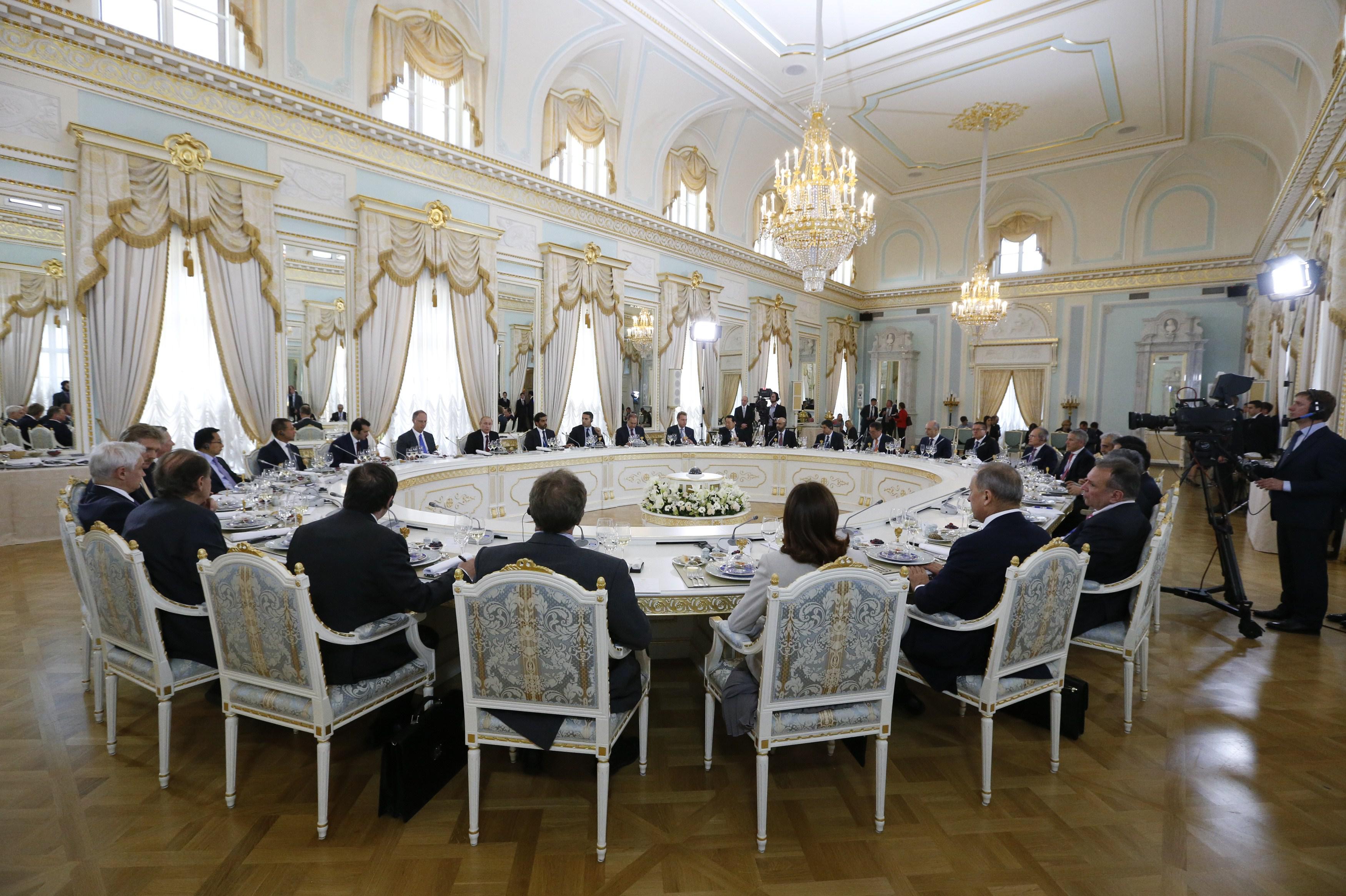It is safe to assume that the world’s rich own a vastly disproportionate share of its wealth. That is because the sorts of people who show up to network at Davos are very, very rich while much of mankind is still very, very asset poor. Forget all those vast tracts of the planet where people live on less than a dollar a day; even in the developed world, most people don’t have much to their name. How much are the bottom 40 percent of Americans worth? Less than zero, financially speaking.
Still, it’s worth being a bit skeptical when organizations try to put hard numbers on worldwide wealth inequality. For instance, this week, Oxfam International released a study predicting that earth’s top 1 percent would own half of its wealth by next year. Already, it says, the world’s 80 wealthiest people are worth as much as the world’s 3.5 billion poorest. The study was produced with the help of Credit Suisse, which releases its own very popular global wealth report every year. Predictably, it has led to some hand-wringing on the Internet.
Now, you sort of have to admire a Swiss megabank that’s willing to release a study basically saying its clients are gobbling up more of the world’s riches with every passing year (I don’t think they’re doing it to flatter egos). But you should also realize that it’s basically purporting to do the impossible. We don’t really know how the world’s wealth is divvied up. Thanks to magazines like Forbes, we at least have a vague idea how much many of the globe’s actual billionaires are worth. But in the end, there is no global registry listing the owner of each stock, bond, gaudy Mediterranean villa, and London pied-à-terre. Researchers don’t even have access to every country’s tax records, which might let them reverse-engineer distribution. They have to ballpark their guesses, at best. That’s why Thomas Piketty spends a page of Capital in the Twenty-First Century throwing some shade at Credit Suisse and the many other banks that now produce these wealth reports.
It is also important to note that these reports must often rely on heroic hypotheses and approximations, not all of them convincing, in order to arrive at anything like a “global” view of wealth. In any case, they rarely cover anything more than the past few years, a decade at most, and are unfortunately useless for studying long-term evolutions or even reliably detecting trends in global inequality, given the extremely piecemeal nature of the data used.
That said, Piketty allows that the reports do have “the merit of existing,” and even if the numbers they contain aren’t gospel, they’re useful for “focusing one’s thoughts.” So, what should we think about the Oxfam report? Should we really care?
I’m not so sure. You can argue that if wealth inequality is a worldwide problem, it demands a worldwide solution, like an incredibly unlikely global tax. But most of the reasons people care about inequality have to do with life inside their own country. People are concerned about the influence of money on elections, whether inequality slows down growth, or if, eventually, we’re going to be a society dominated by obnoxious rich kids who inherited their fortunes from Mom and Dad. The fact that Bill Gates has more money to his name than a good chunk of the globe’s rural peasants isn’t really germane to those issues, and it’s not going to dictate any national response to them.
